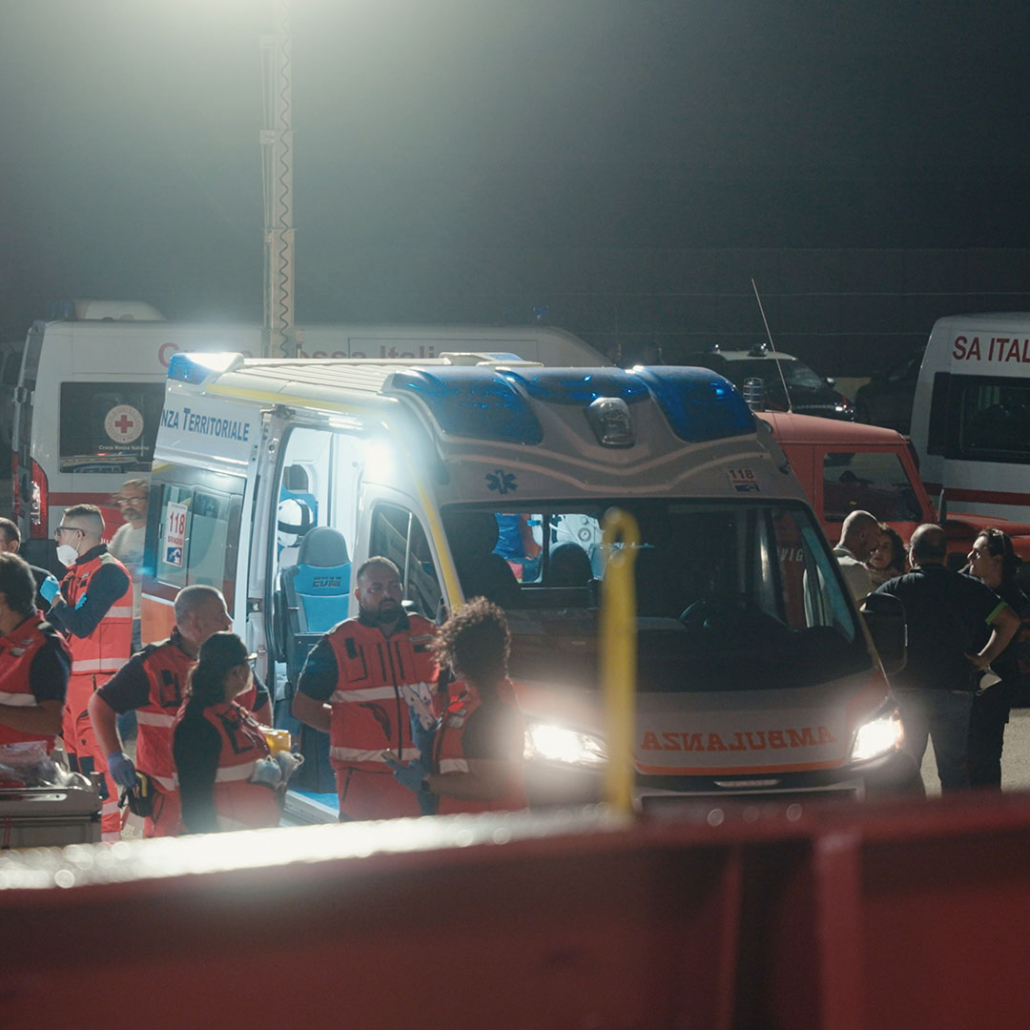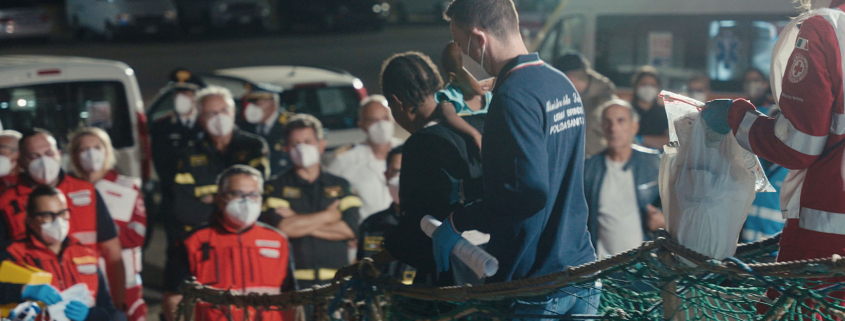SEA-EYE 4 brings 51 people to safety and continues its mission
Italian coastguard conducted nine-hour port state control
On Friday, the SEA-EYE 4 arrived at the port of Brindisi assigned by the Italian Coast Guard. 51 people were able to leave the ship, having been rescued earlier in the night from Tuesday to Wednesday in the Libyan search and rescue zone. Police, 118 rescue workers, volunteers of the Red Cross and civil defence were on the scene, according to Brindisi Report.
“We are very grateful to the local emergency forces of Brindisi. The disembarkation of the rescued people went smoothly, very committed and dignified,” said Gorden Isler, chairman of Sea-Eye e.V..

Still on Friday evening, the harbour master of Brindisi announced a port state control by the Italian coast guard for Saturday. In recent years, such port state controls have repeatedly led to the detention of sea rescue ships and to disputes between the Italian coast guard and the German flag state authorities.
The port state control began on Saturday morning at around 9 am. Two inspectors from the Italian Coast Guard boarded the ship and conducted an intensive technical and nautical inspection. The crew had to demonstrate several drills. These included abandoning the ship in an acute emergency and fire fighting training. The technical and nautical equipment, the ship’s certificates, the crew’s employment contracts, the crew quarters, the survivors’ accommodation, the shipboard hospital and the engine room were intensively checked. In total, the port state control lasted nine hours and ended at around 6pm.
“In an incomparably intensive control, the inspectors found no reasons for the vessel to be detained. The Italian Coast Guard thus confirms to us that the ship and crew are acting in accordance with international regulations. We are proud of our crew and our nautical-technical department. Now the ship can continue the ongoing mission, leave the port and immediately return to the area of operation to save lives,” Isler continues.



